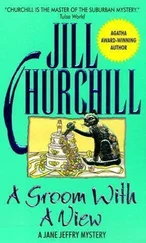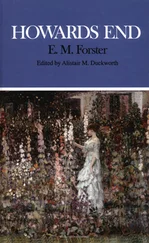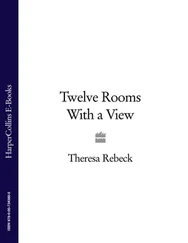Mrs. Wilcox also rose.
"Oh, but come upstairs for a little. Miss Quested plays. Do you like MacDowell? Do you mind him only having two noises? If you must really go, I'll see you out. Won't you even have coffee?"
They left the dining-room, closing the door behind them, and as Mrs. Wilcox buttoned up her jacket, she said: "What an interesting life you all lead in London!"
"No, we don't," said Margaret, with a sudden revulsion. "We lead the lives of gibbering monkeys. Mrs. Wilcox—really—We have something quiet and stable at the bottom. We really have. All my friends have. Don't pretend you enjoyed lunch, for you loathed it, but forgive me by coming again, alone, or by asking me to you."
"I am used to young people," said Mrs. Wilcox, and with each word she spoke the outlines of known things grew dim. "I hear a great deal of chatter at home, for we, like you, entertain a great deal. With us it is more sport and politics, but—I enjoyed my lunch very much, Miss Schlegel, dear, and am not pretending, and only wish I could have joined in more. For one thing, I'm not particularly well just today. For another, you younger people move so quickly that it dazes me. Charles is the same, Dolly the same. But we are all in the same boat, old and young. I never forget that."
They were silent for a moment. Then, with a newborn emotion, they shook hands. The conversation ceased suddenly when Margaret re-entered the dining-room: her friends had been talking over her new friend, and had dismissed her as uninteresting.
Table of Contents
Several days passed.
Was Mrs. Wilcox one of the unsatisfactory people—there are many of them—who dangle intimacy and then withdraw it? They evoke our interests and affections, and keep the life of the spirit dawdling round them. Then they withdraw. When physical passion is involved, there is a definite name for such behaviour—flirting—and if carried far enough it is punishable by law. But no law—not public opinion even—punishes those who coquette with friendship, though the dull ache that they inflict, the sense of misdirected effort and exhaustion, may be as intolerable. Was she one of these?
Margaret feared so at first, for, with a Londoner's impatience, she wanted everything to be settled up immediately. She mistrusted the periods of quiet that are essential to true growth. Desiring to book Mrs. Wilcox as a friend, she pressed on the ceremony, pencil, as it were, in hand, pressing the more because the rest of the family were away, and the opportunity seemed favourable. But the elder woman would not be hurried. She refused to fit in with the Wickham Place set, or to reopen discussion of Helen and Paul, whom Margaret would have utilized as a short-cut. She took her time, or perhaps let time take her, and when the crisis did come all was ready.
The crisis opened with a message: would Miss Schlegel come shopping? Christmas was nearing, and Mrs. Wilcox felt behind-hand with the presents. She had taken some more days in bed, and must make up for lost time. Margaret accepted, and at eleven o'clock one cheerless morning they started out in a brougham.
"First of all," began Margaret, "we must make a list and tick off the people's names. My aunt always does, and this fog may thicken up any moment. Have you any ideas?"
"I thought we would go to Harrod's or the Haymarket Stores," said Mrs. Wilcox rather hopelessly. "Everything is sure to be there. I am not a good shopper. The din is so confusing, and your aunt is quite right—one ought to make a list. Take my notebook, then, and write your own name at the top of the page."
"Oh, hooray!" said Margaret, writing it. "How very kind of you to start with me!" But she did not want to receive anything expensive. Their acquaintance was singular rather than intimate, and she divined that the Wilcox clan would resent any expenditure on outsiders; the more compact families do. She did not want to be thought a second Helen, who would snatch presents since she could not snatch young men, nor to be exposed, like a second Aunt Juley, to the insults of Charles. A certain austerity of demeanour was best, and she added: "I don't really want a Yuletide gift, though. In fact, I'd rather not."
"Why?"
"Because I've odd ideas about Christmas. Because I have all that money can buy. I want more people, but no more things."
"I should like to give you something worth your acquaintance, Miss Schlegel, in memory of your kindness to me during my lonely fortnight. It has so happened that I have been left alone, and you have stopped me from brooding. I am too apt to brood."
"If that is so," said Margaret, "if I have happened to be of use to you, which I didn't know, you cannot pay me back with anything tangible."
" I suppose not, but one would like to. Perhaps I shall think of something as we go about."
Her name remained at the head of the list, but nothing was written opposite it. They drove from shop to shop. The air was white, and when they alighted it tasted like cold pennies. At times they passed through a clot of grey. Mrs. Wilcox's vitality was low that morning, and it was Margaret who decided on a horse for this little girl, a golliwog for that, for the rector's wife a copper warming-tray. "We always give the servants money." "Yes, do you, yes, much easier," replied Margaret, but felt the grotesque impact of the unseen upon the seen, and saw issuing from a forgotten manger at Bethlehem this torrent of coins and toys. Vulgarity reigned. Public-houses, besides their usual exhortation against temperance reform, invited men to "Join our Christmas goose club"—one bottle of gin, etc., or two, according to subscription. A poster of a woman in tights heralded the Christmas pantomime, and little red devils, who had come in again that year, were prevalent upon the Christmas-cards. Margaret was no morbid idealist. She did not wish this spate of business and self-advertisement checked. It was only the occasion of it that struck her with amazement annually. How many of these vacillating shoppers and tired shop-assistants realized that it was a divine event that drew them together? She realized it, though standing outside in the matter. She was not a Christian in the accepted sense; she did not believe that God had ever worked among us as a young artisan. These people, or most of them, believed it, and if pressed, would affirm it in words. But the visible signs of their belief were Regent Street or Drury Lane, a little mud displaced, a little money spent, a little food cooked, eaten, and forgotten. Inadequate. But in public who shall express the unseen adequately? It is private life that holds out the mirror to infinity; personal intercourse, and that alone, that ever hints at a personality beyond our daily vision.
"No, I do like Christmas on the whole," she announced. "In its clumsy way, it does approach Peace and Goodwill. But oh, it is clumsier every year."
"Is it? I am only used to country Christmases."
"We are usually in London, and play the game with vigour—carols at the Abbey, clumsy midday meal, clumsy dinner for the maids, followed by Christmas-tree and dancing of poor children, with songs from Helen. The drawing-room does very well for that. We put the tree in the powder-closet, and draw a curtain when the candles are lighted, and with the looking-glass behind it looks quite pretty. I wish we might have a powder-closet in our next house. Of course, the tree has to be very small, and the presents don't hang on it. No; the presents reside in a sort of rocky landscape made of crumpled brown paper."
"You spoke of your 'next house,' Miss Schlegel. Then are you leaving Wickham Place?"
"Yes, in two or three years, when the lease expires. We must."
"Have you been there long?"
"All our lives."
"You will be very sorry to leave it."
Читать дальше












